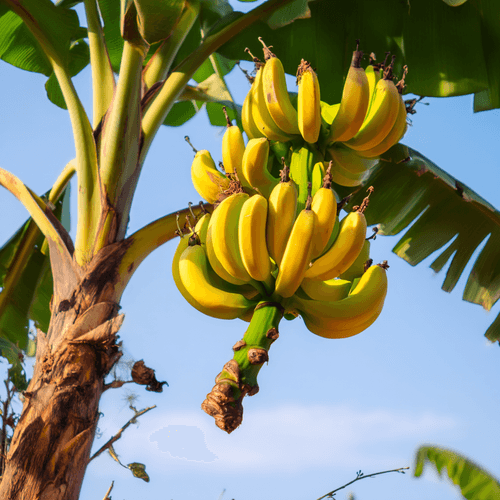Did you know ?
- 1 Bananas float in water.
- 2 Banana plants are actually giant herbs, not trees.
- 3 Wild bananas have seeds, but commercial bananas are seedless.

Bananas are elongated, curved fruits with a sweet flavor and creamy texture. They are rich in potassium, fiber, and vitamins, making them a convenient and nutritious snack. Bananas are typically eaten raw, but can also be used in cooking and baking.
Did you know ?
View other Tropical fruits
Nutrition
| Calories | 105 kcal |
| Proteins | 1.3g |
| Carbohydrates | 27g |
| of which sugars | 14.5g |
| Fiber | 3.1g |
| Fats | 0.4g |
Ripeness
Selection
Storage and ripening
If you bought unripe bananas, here's how to speed up the process :
Health
Origin
Bananas are believed to have originated in Southeast Asia. They spread throughout the tropics and were introduced to the Americas by European colonizers. Today, bananas are grown in over 100 countries.
Recipes
Gallery
There is no images yet. Submit one now to contribute to the gallery !
F.A.Q
Warnings